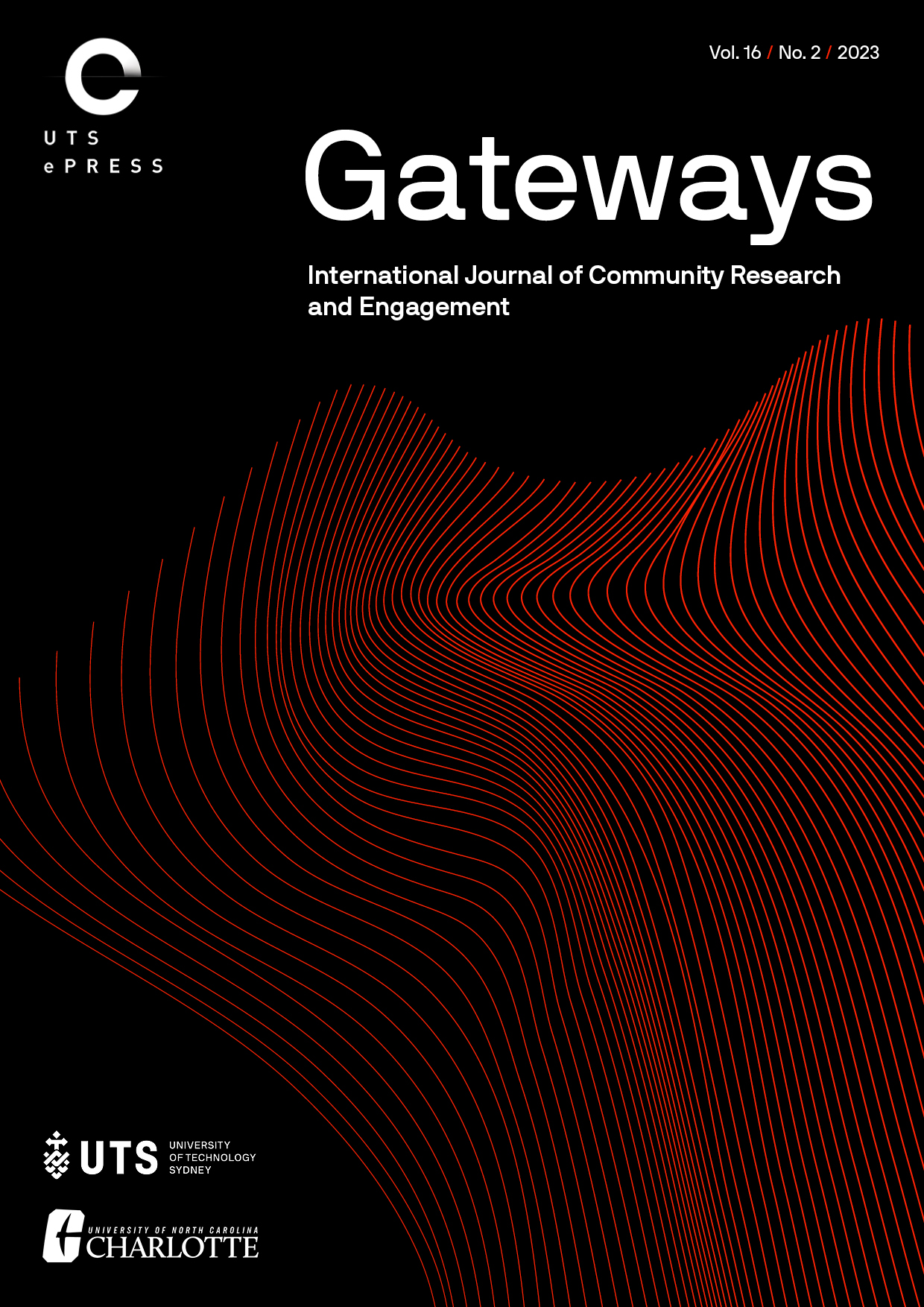‘Can you put down your mission and plug into mine?’ How place-based initiatives leverage collaborations with academic institutions to enhance their ABCD and CBR potential
Main Article Content
Abstract
Place-Based Initiatives (PBIs) involve efforts to mobilise and coordinate local resources, services and expertise across multiple organisations and sectors in order to strengthen the social, structural, physical and economic conditions of historically disinvested neighbourhoods. While promising, these initiatives have had some documented challenges, and some are leveraging partnerships with academic institutions to address those challenges. In this article, we explore perspectives of leaders and staff from three PBI organisations in Charlotte, NC to better understand the benefits of PBI-academic partnerships and the conditions under which they are most effective. Thematic analysis of 23 semi-structured interviews revealed that PBIs leverage partnerships with academic institutions to accomplish two key goals. First, these partnerships stimulate asset- based community development (ABCD) by connecting community organisations and neighbourhood residents with academic resources and by strengthening PBI service delivery. Second, some partnerships give rise to community-based research efforts that help address external accountability challenges and inform PBI programming. The findings also illuminated several pitfalls in academic-PBI partnerships, sometimes rooted in conflicting priorities and approaches of academic researchers and non-profit practitioners. Finally, insights delineate key recommendations for improving PBI-academic collaborations, including countering academic exploitation by plugging into PBIs’ mission and respecting PBI expertise.
Article Details
Issue
Section
Authors who submit articles to this journal from 31st March 2014 for publication, agree to the following terms:
a) Authors retain copyright and grant the journal right of first publication with the work simultaneously licensed under a Creative Commons Attribution License that allows others to share and adapt the work with an acknowledgement of the work's authorship and initial publication in this journal.
b) Authors are able to enter into separate, additional contractual arrangements for the non-exclusive distribution of the journal's published version of the work (e.g., post it to an institutional repository or publish it in a book), with an acknowledgement of its initial publication in this journal.
c) Authors are permitted and encouraged to post their work online (e.g., in institutional repositories or on their website) prior to and during the submission process, as it can lead to productive exchanges, as well as earlier and greater citation of published work (See The Open Access Citation Advantage Service). Where authors include such a work in an institutional repository or on their website (ie. a copy of a work which has been published in a UTS ePRESS journal, or a pre-print or post-print version of that work), we request that they include a statement that acknowledges the UTS ePRESS publication including the name of the journal, the volume number and a web-link to the journal item.
d) Authors should be aware that the Creative Commons Attribution (CC-BY) License permits readers to share (copy and redistribute the work in any medium or format) and adapt (remix, transform, and build upon the work) for any purpose, even commercially, provided they also give appropriate credit to the work, provide a link to the license, and indicate if changes were made. They may do these things in any reasonable manner, but not in any way that suggests you or your publisher endorses their use.
For Volume 6 (2013) and before, the following copyright applied:
Articles published by UTSePress are protected by copyright which is retained by the authors who assert their moral rights. Authors control translation and reproduction rights to their works published by UTSePress. UTSePress publications are copyright and all rights are reserved worldwide. Downloads of specific portions of them are permitted for personal use only, not for commercial use or resale. Permissions to reprint or use any materials should be directed to UTSePress.
